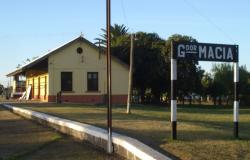The provincial government will offer a disengagement regime to the Rio Negro state employees.
The text will be defined in the next few hours for immediate submission to the Legislature, with its treatment expected in the next session, which will be in mid-May.
The regime – which would be in force in June or July – will have part of the mechanism applied in 1997 (Law No. 3135), differentiated by its economic proposal. The one implemented by Pablo Verani’s government offered initial “compensation” and, in this case, there will be a disbursement and part of the salary will be maintained for a period.
That point is part of the missing details. Governor Alberto Weretilneck exchanges ideas and conclusions with the Minister of Finance, Gabriel Sánchez; the president of the block, Facundo López; the State Attorney, Gastón Pérez Estevan and the Legal Secretary, Milton Dumrauf.
Much of the disengagement scheme is resolved, starting with the fact that The proposal will exclude teachers and police officers. These vacancies must be filled, then the reason for the program will have been lost: the reduction of the state personnel force.
- 10
- Years of seniority of the agent will be the cutoff to specify the corresponding compensation proposal.
- 5
- Salaries will be the initial payment for workers who join and do not accumulate more than 10 years in the State.
There will be two compensation formulasfrom a cut in seniority, established between agents with less or more than 10 years in the provincial State.

The initial amount will be paid in cash and will include five salaries for the first tram.or while it will be seven remunerations for those workers with more than a decade in public work.
The second assignment will consist of the maintenance of part of the assets for a period.
The proportion would be 50% of the last amount received and would extend for 12 months, with the continuity of the social work.
There will be two compensation formulas, based on a cut-off based on the agent’s seniority, divided between those who have less or more than 10 years in the State.
In the search for job insertion, the initiative will contemplate tax benefits for the unemployed if they register with some economic activity and, also, exemptions for the private sector that incorporates them into their workforce.

The measure proposed by the Weretilneck government is aimed at reducing the expense of the Río Negro Personnel plant, which It will seek to combine with the definitive implementation of certain controls at the level of absenteeism and licenses.
The regime seems to be focused – especially – on the segment of goalkeepers, close to 5,000 in the state, with a high level of absence and medical leaves.

In Verani’s 1997 program, he had financing from a state reform program of the World Bank, which totaled about 25 million dollars. On that occasion, the dismissals were around 1,200 from the state. Many of them were individual resignations, but there were also collective separations with the implementation of service outsourcing, encouraged by the State but which, in the end, did not work, as happened with the doorman cooperative.
The precedent of 1997
The precedent of Law 3,135, promulgated in September 1997, limited its accession to the state by the date of entry into the State and the restriction was set to November 30, 1994, that is, the end of Horacio Massaccesi’s administration.
On that occasion, heAcceptance of the dismissal means the receipt “on a one-time basis of a fixed compensation sum in pesos, equivalent” to two “salaries for each year of seniority (or fraction greater than six months) that the agent accredits.”.
In addition, it was established that personnel who access the regime “will not be able to enter any of the human resources regimes in force in the State for a period of eight years, with the exception of elective positions.”
It had an “individual” system and another “outsourcing” system. The latter consisted of the State encouraging the formation of “economic units under legal forms of private law, with the main objective of providing the complementary goods and/or services required by the Provincial State to provide the public services under its responsibility.” .










